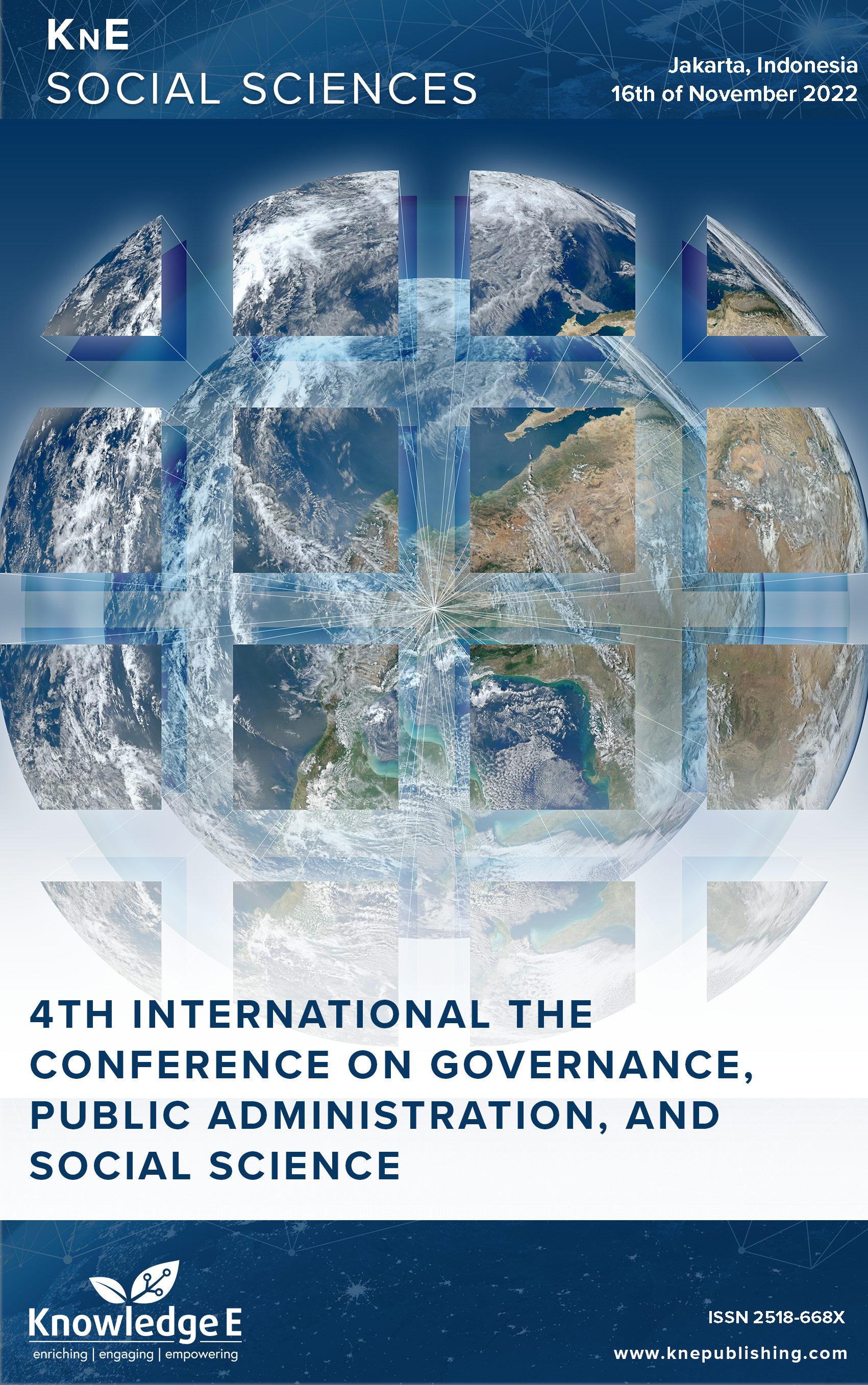Collaborative Governance in Risk Mitigation of Climate Change's Impact on Health
DOI:
https://doi.org/10.18502/kss.v8i11.13547Abstract
This study aims to evaluate the absence of climate change risk mitigation policies that are not yet part of the authority of the Ministry of Health despite the large potential impact of climate change on public health. The implementation of climate change risk mitigation on health intersects with various sectors, including the Ministry of Public Works and Public Housing, the Ministry of Finance, the Ministry of Agriculture, and the Ministry of Environment and Forestry. However, the Ministry of Health has still not implemented risk mitigation, which can be reflected in the absence of a climate change risk mitigation budget or what is called green budget tagging. In addition to the absence of risk mitigation in the Ministry of Health’s budgeting, the implementation of climate change risk mitigation is still lacking in inter-sectoral coordination, and the roadmap for handling climate change impacts is still being carried out by sector and has not been carried out nationally. The methodology used in this research is a qualitative approach, data collection was done by studying literature and secondary data. The results of the study indicate that collaborative governance is needed in handling the impact of climate change on health, both between ministries and institutions, the Central and local governments, as well as academics, media, and international parties.
Keywords: collaborative government, mitigation risk, climate change
References
[2] Pusat Kajian Anggaran, Anggaran Hijau Indonesia Dalam Menghadapi Perubahan Iklim, Badan Keahlian Setjen DPR RI, 2022.
[3] Indonesia WH. Medukung Hak Atas Lingkungaan Yang Sehat, Mengatasi Ketidaksetaraan, 2021.https://www.who.int/indonesia/news/campaign/internationalhumans- right-day-2021
[4] Kementerian Kesehatan, Data Dan Informasi Dampak Perubahan iklim Sektor Kesehatan Berbasis Bukti Di Indonesia, 2021.
[5] Rencana Pembangunan Jangka Menengah Nasional (RPJMN) 2015-2019.
[6] Rencana Pembangunan Jangka Menengah Nasional (RPJMN) 2020-2024.
[7] http://ditjenppi.menlhk.go.id/kcpi/index.php/info-iklim/perubahan-iklim. Download on 17-10-2022.
[8] Permenkes Nomor 1018 Tahun 2011 tentang Strategi Adaptasi Sektor Kesehatan terhadap Dampak Perubahan Iklim.
[9] Worldbank. What is Climate Change, 2021, https://climateknowledgeportal. worldbank.org/overview. Download on 24-10-2022.
[10] Soeharsono Z. Penyakit Menular dari Hewan ke Manusia. Yogyakarta: Kanisius; 2002.
[11] WHO. World Health Statistics 2019: Monitoring health for the SDGs. In FLEPS 2019 - IEEE International Conference on Flexible and Printable Sensors and Systems, Proceedings (Vol. 6), 2019.
[12] Kementerian Lingkungan Hidup Dan Kehutanan Republik Indonesia.Roadmap Nationally Determined Contribution (NDC) Adaptasi Perubahan Iklim, 2020.
[13] PAHO. Climate Change and Health.https://www.paho.org/en/topics/climate-changeand- health, Download on 16-10-2022.
[14] Miles MB, dan Michael Huberman A. An expanded sourcebook: Qualitative data analysis. London: Sage Publications, 1994.
[15] Blum, Hendrik L. Planning for health, development and application of social changes theory. New York: Human Sciences Press; 1974.
[16] Peraturan Menteri Kesehatan Republik Indonesia Nomor 1018/Menkes/PER/V/2011 tentang Strategi Adaptasi Sektor Kesehatan Terhadap Dampak Perubahan Iklim.
[17] Keputusan Menteri Kesehatan Republik Indonesia Nomor Hk.01.07/Menkes/423/2017 tentang Tim Teknis Adaptasi Dampak Perubahan Iklim Bidang Kesehatan.
[18] Ansell C, Gash A. Collaborative governance in theory and practice. J Public Adm Res Theory. 2008 Oct;18(4):543–571.

